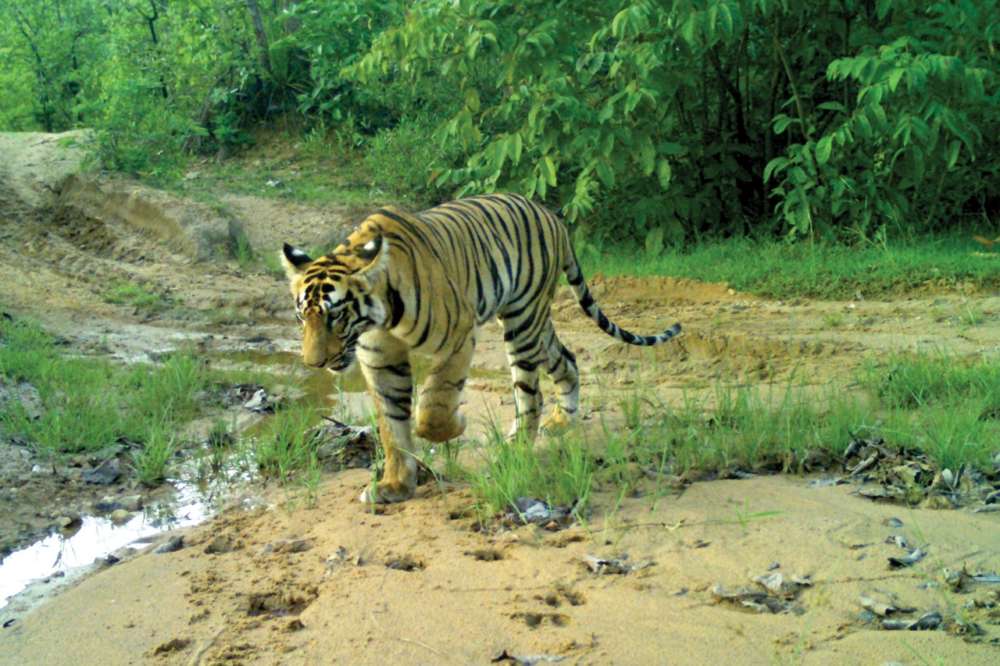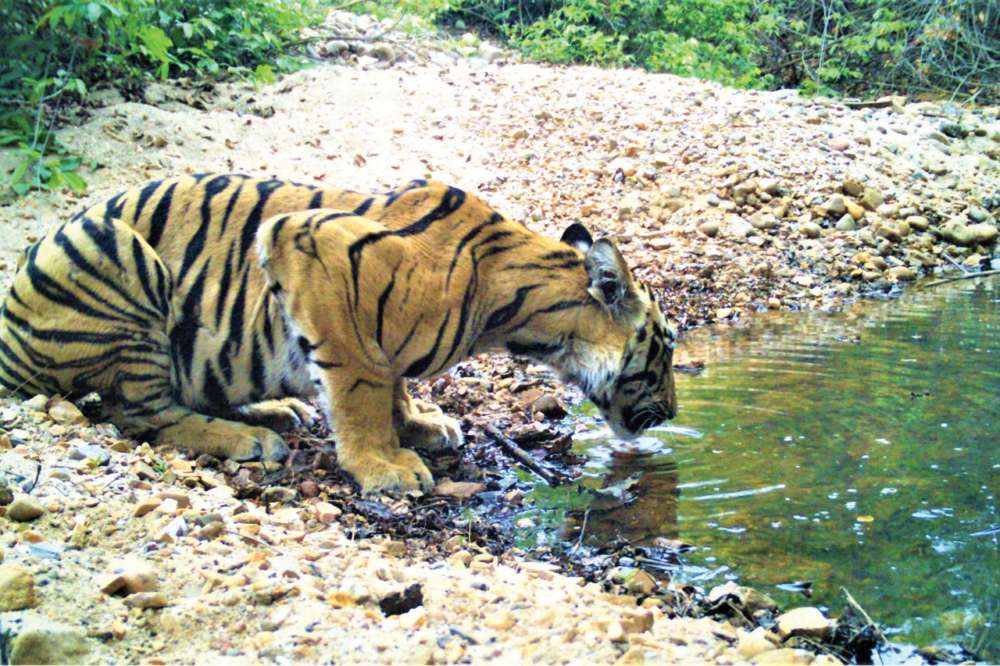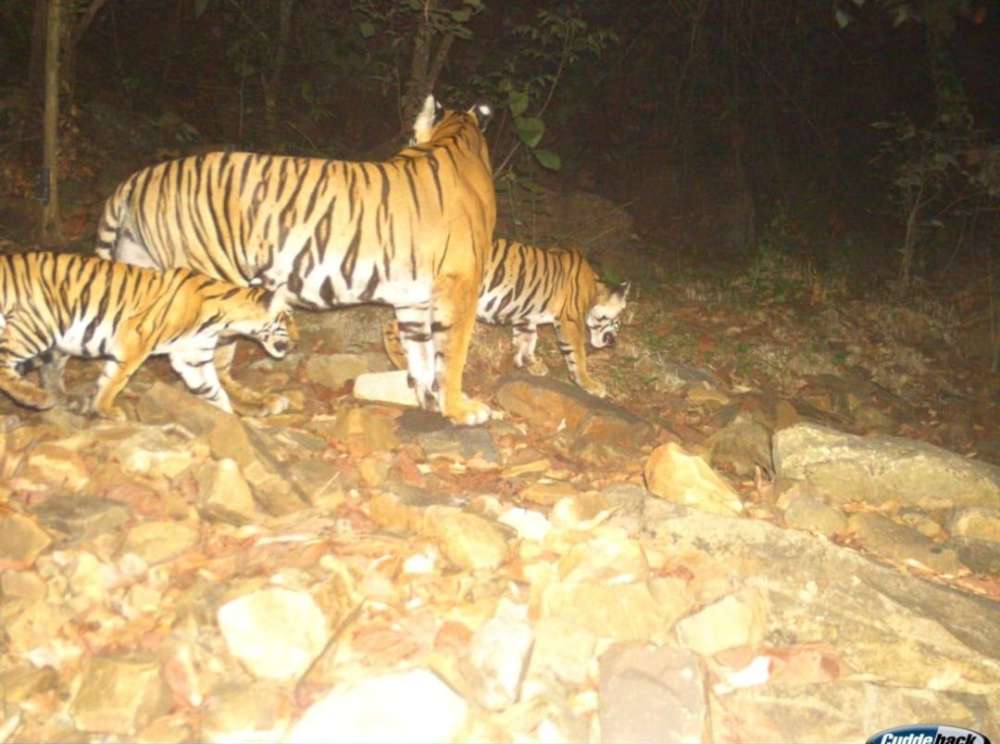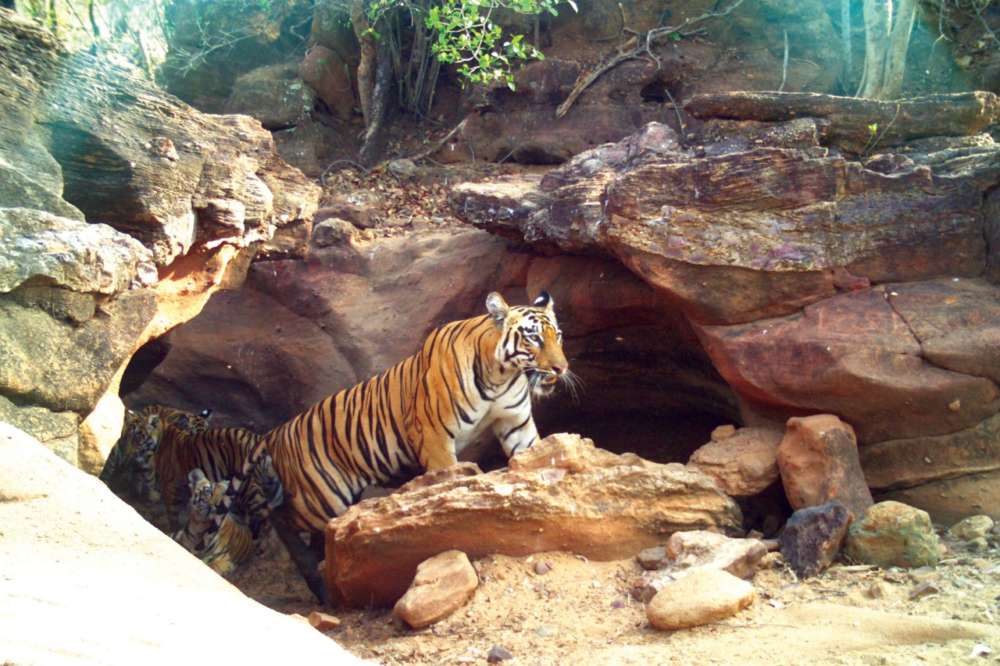Hyderabad: The Centre has reiterated that it would go ahead with the proposed uranium mining in Telangana’s Amrabad Tiger Reserve in the face of stiff opposition from various quarters.
The Centre’s determination to go for the mining has made the future of tigers in Telangana uncertain.
Telangana has two tiger reserves—ATR in Amrabad and Kawal Tiger Reserve in Jannaram. The area reserved for ATR is 2,611.39 sq km and KTR is spread over 3,296.31 sq km.
ATR and Nagarjunsagar-Srisailam Tiger Reserve together formed the biggest tiger reserve in the country until 2014 when Telangana State was carved out of AP.

According to the figures released by Delhi to mark the International Tiger Day, Telangana has a total of 26 tigers while AP around 48. In spite of the breakup of the NSTR in 2014, ATR is the second largest tiger reserve after NSTR.
Amrabad Tiger Reserve as well as NSTR with no distinct lines dividing them are expected to be hugely affected by the uranium exploration.
“Telangana State is part of the Central Government’s thrust areas with regard to the mining of uranium,” Union Minister of State for Atomic Energy and Space Jitendra Singh informed the Lok Sabha recently.
He said the Uranium Corporation of India Limited, has identified major production centres in Telangana, Jharkhand, Andhra Pradesh, Karnataka, Chhattisgarh and Rajasthan.

“Uranium mining has proved to be a disaster. It causes great damage to the lives of people, flora, and fauna in the targeted areas,” said Bolisetty Satyanarayana, a senior Congress leader and social activist.
It will affect the lives of tribes in Amrabad Tiger Reserve and the myriad villages located in the downstream Krishna. In fact, it affects both the states of Telangana and Andhra Pradesh, he added.
In May last the Forest Advisory Committee (FAC) of the Central Government gave an in-principle approval for exploratory drilling for uranium ore over 83 sq km area in Amrabad Tiger Reserve in Nagarkurnool and Nidgu located in erstwhile Nalgonda district.
The FAC has said that the uranium mining project in Telangana is of “critical importance from the national perspective.”
The Field Director of the Amrabad Tiger Reserve, however, has refused to clear the project noting that the area proposed for exploration of uranium is one of the biggest tiger reserves in the country with rich biodiversity.
“If mining activity is permitted, it will cause habitat fragmentation and disturbance to wildlife, resulting in wastage of all efforts made over the years to restore wildlife and improve habitat in the core area (of the tiger reserve),” the report underlined.

The report also observed that the project proposes to dig around 4,000 bores for exploration. “They would be using machines to drill the bores, which would disturb the wild animals living in these areas,” the report
Authored by Mohammed Hussain
mohammedhussain.reporter@gmail.com

